So please forgive me if I climb up on that well-worn soap box. If I filibuster. If I testify. Know that I take no pleasure in it.
Okay – know that I only take a modicum of pleasure in it.
Perhaps more than any year before, 2010 was a contest of opposites within the nerd community, a study in stark contrast of who we are and what we do. Case in point: this year started off with a bang as a geeky white rapper explained to us how geeky white rappers making geeky white rap was inherently racist, and we got all up in arms and shit. Like we do. Meanwhile on the other side of the meta-community, those kids who make music about that one book series were working in a concerted effort to raise money for disaster relief. Peep the dichotomy.
I'm not really sure if this set the stage for the events to come or simply opened my eyes to the very duality that defines the modern nerd, but regardless it colored my understanding of all that transpired thereafter.
It also gave me a newfound respect for subtlety.
You see, while some of us were debating the nature of geeky art others were making geeky art and employing it to positive ends. While we were mistaking self-importance for actual importance others were breaking ground and moving mountains. While we were debating what it means to be a nerd others were being – with apologies to John and Patrick – functional nerds.
This was the year that finally drove home the fact that nerd life can be whatever you make of it, and that terms like nerd, geek and nerdcore are all deceptively flexible. The trick is in making sure that those words actually mean something special. The magic is in giving them legs and, in some cases, teeth.
The best nerd music of 2010 seems to clearly acknowledge this fact.
On the nerdcore side, genre mainstay MC Frontalot seemingly ignored the unfolding drama while crafting his best album to date, the eclectic Zero Day
There was also amazing movement outside of the stylistic fence that is recognized geeky hip-hop. Navi (formally Myf of the nerdcore-adjacent Metamystiks, Inc.) dropped Lo Fi Muey Thai – a veritable roller coaster ride of beats, rhymes and aural intelligence. And he was joined by a growing number of underground hip-hoppers from east (Never Yet Contested) to west (A-1) willing to fully mine the nerdier side of pop culture for artistic inspiration. Hell, 2010 is even the year that former attorney Adam WarRock
The chip music community also saw amazing strides from stalwarts like Inverse Phase and Doctor Octoroc, both of which released genuinely inspired cover albums that helped push minimalist electronica further into the minds of the masses. These were only surpassed in quality by the vocal bit-pop of works like Stenobot's emotionally wrenching Sink or Swim We'll Go Together and Doctor Popular's exquisitely day-dreamy Beeps and Smudges.
Still, I was most impressed by the musical output from our friends making what I collectively refer to as geek rock. The aforementioned Wizard Rock community – long lambasted as single-note niche acts – expanded into everything from LOST-themed concept bands to indie pop. (Big ups for my friend Matt for introducing me to the concept of post-WRock!) Nerdcore heavy-hitters ZeaLouS1 and Dr. Awkward even tossed a dash of geek metal into the mix with their own project The Bossfights, heretofore known as the band that changed Nerdapalooza forever.
The common thread throughout all these artists and releases is clearly a focus on musical nerdery that is in no way devoid of talent or craftsmanship. I can't help but see 2010 as the year when quality control came full circle. The output was so astounding that you couldn't just slide by on a couple of Zelda samples or a Star Wars tribute – you really had to create a quality product to get noticed.
For my money, no act did this better than Kirby Krackle. E For Everyone
In a year where geek became a marketing term, a time when making actual art often took a back seat to alternately clinging to or rejecting the nerd artist label, some soldiered on. And those are the artists that truly matter. They represent the community that I support and wish to be a part of.
You see, for years I've had this grand idea that we as the burgeoning nerd community stand for something. That we have some deeper, righteous purpose, and 2010 really did a lot to shit all over such high-minded idealism.
For an example we need look no further than the recently published Wired piece from Patton Oswalt. While it is the nerd's first instinct to celebrate and devour such gems from one of our kind in such a position of notoriety, the subtext of his piece on the death of geek is really just another example of the "get off my lawn" posturing for which we dorks are famed. It doesn't matter that our hard-fought pop culture has been absorbed into the mainstream, because the grand secret of ultimate nerdery is that everyone is and has always been a geek. Whatever passion you feel for whatever diversion you find most palatable is your own shade of geekiness. In Patton's own words, "It’s the method of consumption, not what’s on the plate."
The problem here is that we've let the bright lights of the outside world blind us. We want to preserve the sanctity of nerd, but we don't want to actually have to do anything with it. We want our studious nature and our sacred minutiae, but we don't want to acknowledge that these came from a place of self-realized degradation. Ill-content to simply be accepted or even valued, we have succumbed to the urge to feel superior. We don't want to see Boba Fett on the shirts of "gym douches hefting dumbbells," instead we want to be the gatekeepers of these geek artifacts. Essentially we have squandered our cultural heritage to hedge out the dreaded sell-out syndrome.
But in the end talking about nerd culture is no way to spread the news that we really need to stop talking about nerd culture before all the straights gobble it up. In fact, the things that those we deem as outsiders can easily assimilate – Star Trek or D&D or birth control glasses – are the least important elements of our civilization.
We retreated into such nerdy passions because we felt different, because forces both internal and external told us that we were incapable of meaningful interaction with our betters. But folks like you and me and Patton and Frontalot realized that this was bullshit and we worked through it. The trick is to leverage that strength into something meaningful, be it a song about the power of fan conventions
And while a lot of you are likely applauding Oswalt's words regarding our obsolescence, I'd like to conclude by explaining why nerd culture is in fact more important than ever.
You likely remember the story of Katie Goldman, but in case you missed it here is the skinny. Earlier this year 7-year-old Katie was bullied by the boys in her first grade class for liking Star Wars. An adopted kid with glasses and a lazy eye, she was an easy target, and the combination of her gender and a Star Wars water bottle proved a proper lightning rod. Her mom Carrie wrote about the experience in her blog at Chicago Now, and the news spread like wildfire.
Social media sites and blogs passed the word along, and support began to swell. Clone Wars' Catherine Taber weighed in with her own words of wisdom, ThinkGeek sent her a lightsaber of her very own and a hashtag trended on Twitter in Katie's honor. Normal, functional nerds, people who were more concerned with supporting the next generation than debating fucking semantics, let their voices be heard. And I'll bet that at least a few of them were those oft-maligned n00bs only now dipping a toe into our culture.
This surely won't be the last time Katie encounters resistance in her life, but just knowing you're not alone has a steeling effect on minds young and old. Being a part of something bigger, a veritable fraternity of freaks and weirdoes has a distinctly therapeutic quality. And I can't help but think that in a time where geek culture is acknowledged (if not always positively), in a place where Kirby Krackle plays the stage at your favorite con

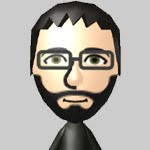


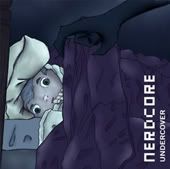
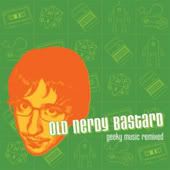
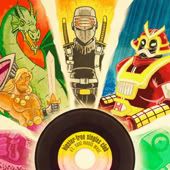
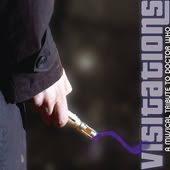
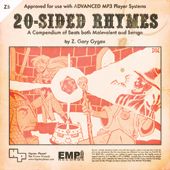
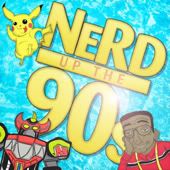







5 comments:
That was an excellent post. Puts Patton Oswalt's whining to shame.
I would like to add that I've become a chip musician myself (cheap plug ahead: http://ironcurtain.bandcamp.com), and I have shown a chip œuvre of mine to a major-label artist who is marrying a friend of mine, and he enjoyed the tune! I personally believe we have nothing to lose and everything to gain the more geeks become mainstream, and I'm sorry people like Patton Oswalt feels like being a geek means nothing, when I think it means even more today than ever before.
Thanks, Iron Curtain. (And I'll be sure to check out your tracks!) I actually thought Patton's piece was enjoyable and well written. I just didn't necessarily agree. I think he's focusing too much on the superficially geeky elements - the easy stuff.
I remain mystified at the attention Oswald's piece has received. It's like bitching that someone built a library and now you're not the only one in town who can quote from "Pride and Prejudice." Your priorities are messed up.
I still hold to my theory that the whole piece is a Swiftian send up of folks who cling to the old ways.
But yeah, I gave it the five minutes it deserved, now lets move on to some fun stuff.
And now, thanks to Z, I have earned my foot note in history as the guy who coined the term 'post-WRock'. My work is done here.
Nice analogy, Church.
I'm just pissed I didn't come up with it myself, Matt. "Post-WRock" - it only makes sense! :)
Post a Comment